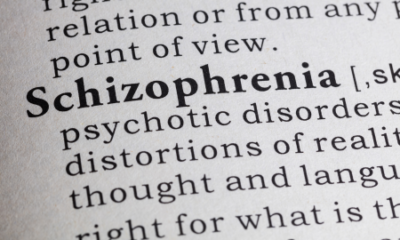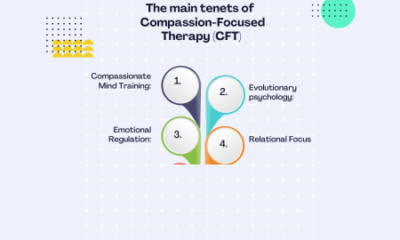Anxiety
Anxiety in the Digital Era: The Twofold Impact of Technology
Published
4 months agoon

Summary: In the age of technology, it is crucial to know the impact of digital interference on our mental health. The ways to maintain a balance between the pros and cons of technology in our day-to-day lives have been discussed.
In the age of the digital environment, technology has a great impact on our daily lives, our means of work, connecting with others, and accessing information. As we delve into the complex relationship between technology and anxiety, we explore how it can both fuel and assist in managing this pervasive mental health issue.
Causes of anxiety:
Impact of Social Media: The omnipresence of social media platforms has created an era of seamless connectivity. However, online content often leads to social comparison, fostering feelings of insecurity and anxiety about one’s own life in constant comparison to others. The “Fear of Missing Out” (FOMO) is intensified as individuals are exposed to constant real-time updates on the activities of their peers.
Information Anxiety: The large amount of information provided by technology can create a sense of overwhelm. The ceaseless flow of emails, notifications, and updates can cause a feeling of information overload, which can lead to stress and anxiety.
Work-Life Balance: The expectation for instant feedback or reaction in digital communication fades the boundaries between work and personal life. The pressure of constant availability through smartphones and email notifications can certainly lead to burnout. Individuals find very little time to relax and stay away from the pressures of work.
Advantages of technology that should be used to combat anxiety:
Digital Wellness: On the other hand, technology has birthed many mental health apps, especially those designed to combat anxiety. These apps offer various tools like meditation, relaxation, and mood tracking, helping individuals actively engage in their mental wellness. The digital wellness tools focus on balancing our tech-infused lives with mindful consumption.
Online Therapy Platforms: In this digital era, it has become easy to break down barriers to seeking mental health support. These online platforms constantly provide a space for individuals to avail mental health support from the comfort of their convenient places, helping reduce the stigma associated with seeking professional support.
Health-Tracking Tools: Various wearable gadgets equipped with health-tracking apps help individuals monitor their physical well-being. Users can make informed positive lifestyle choices by gaining insights into sleep patterns, heart rate & exercise levels.
Important Aspects:
Strategic Usage of Technology: In the digital era, we need to use technology as consciously as possible. It is crucial to set boundaries on social media consumption, manage notification settings, and schedule tech-free breaks to mitigate the negative impact of technology on anxiety.
Importance of Digital Literacy: Promoting digital literacy and mental health education is of prime importance. Equip individuals with the skills to engage with technology critically and understand its impact on physical, mental, and social wellness. Also harness its positive potential for well-being.
Conclusion:
Acknowledging the dual nature of technology’s impact on anxiety is crucial. By creating a mindful and balanced relationship with technology, attributing its positive contributions, and actively seeking digital well-being, we can harness the true potential of technology to tackle the challenges of anxiety in the digital era.
About Amrita Dutta: I’ve completed Masters in Applied psychology from university of Calcutta. I’ve also completed 5 months training program in mental health care from NIBS, Kolkata. I’ve done certificate course in psychological counselling from SWAYAM foundation, Delhi.









